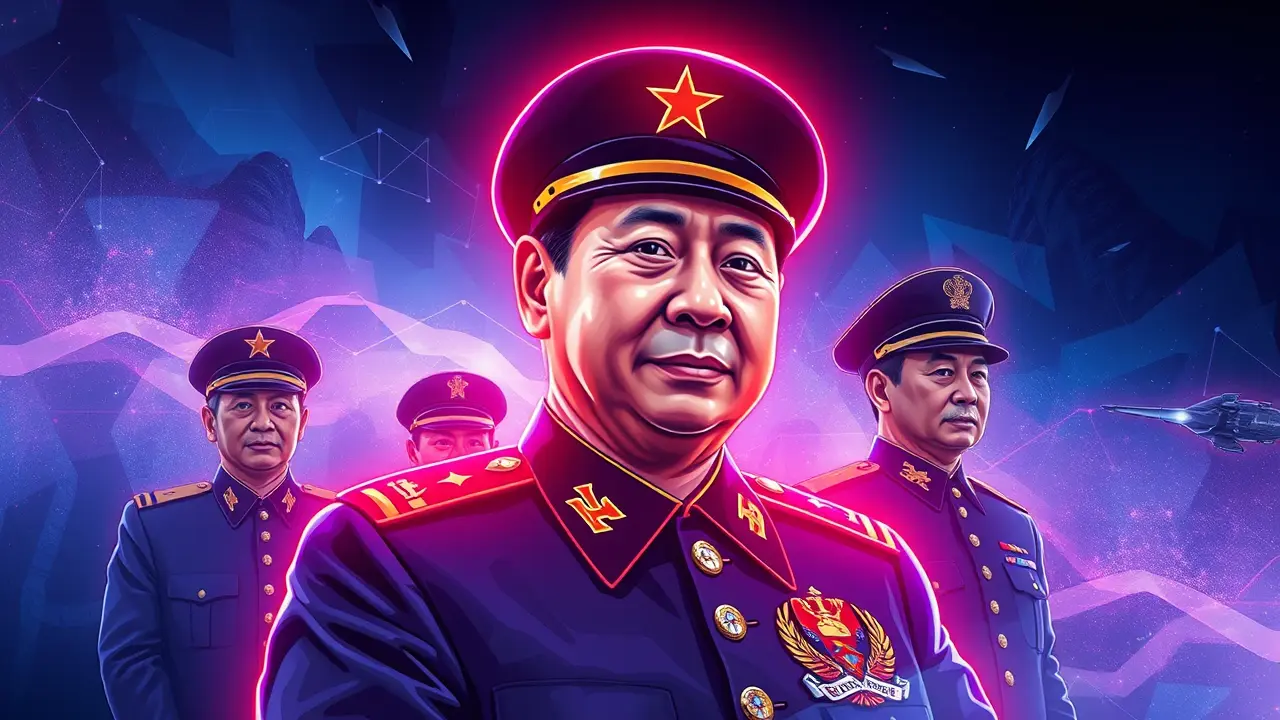Chinese General He Weidong Expelled in Corruption Probe
The expulsion of General He Weidong from China's Communist Party and military, announced by the Ministry of National Defence, is not merely another personnel shift within the opaque upper echelons of the People's Liberation Army; it is a significant shock to the system, a calculated move by Xi Jinping that carries profound political risk and signals a renewed, intensified phase in his decade-long anti-corruption campaign. He Weidong was no minor figure; as the vice-chairman of the Central Military Commission, China's top military command, and one of only two uniformed officers on the 24-member Politburo, he represented the absolute pinnacle of military-political power.His fall marks a critical escalation—he is the first *serving* member of the current Politburo to be ousted on such charges, a stark reminder that no one, regardless of their proximity to the center, is immune. This action must be analyzed through a risk-assessment lens: the immediate scenario is a consolidation of Xi's personal control over the armed forces, purging a potential rival or a figure deemed disloyal, thereby neutralizing any internal opposition to his command.However, the secondary and tertiary risks are substantial. Internally, such a high-profile expulsion could destabilize factional balances within the PLA, creating uncertainty and fear among the senior officer corps, potentially leading to a period of internal paralysis or, conversely, intensified jockeying for position as others seek to fill the power vacuum.The official narrative will, of course, frame this as a necessary cleansing to maintain military discipline and combat readiness, but the underlying calculus is inherently political. Historically, since Xi Jinping launched his sweeping 'tiger-hunting' campaign in 2012, over a dozen senior generals and officials have been felled, including the previously unthinkable takedown of former CMC vice-chairmen Guo Boxiong and Xu Caihou.He Weidong's case fits this pattern but raises the stakes considerably, suggesting that the pool of 'tigers' is now being drawn from the very core of the present-day leadership. The potential consequences ripple outward.For China's geopolitical posture, particularly regarding Taiwan and the South China Sea, a purged and potentially unsettled military command structure could lead to either a more cautious stance as officers avoid risky initiatives, or, in a more dangerous scenario, to more aggressive posturing by individuals seeking to prove their loyalty and worth. From a market and economic stability perspective, while direct impact may be muted, it reinforces a pattern of unpredictable, top-down political interventions that foreign investors must factor into their China risk models.The alternative scenario, one that cannot be discounted, is that the corruption charges are a pretext for a deeper, more personal power struggle, a warning shot to others in the Politburo Standing Committee that Xi's authority remains absolute and non-negotiable. This event is less about one general's alleged malfeasance and more about the continuous, high-stakes game of political survival at the very top of the Chinese party-state, a game where the ultimate risk is not just a career, but one's freedom and legacy.
JA
Jamie Larson123k2 days ago
wow that's a pretty big deal tbh, feels like we're always just hearing about this stuff after the fact idk what to think anymore
0
JA
Jamie Larson123k2 days ago
wow that's a massive shakeup tbh, makes you wonder what's really going on behind the scenes
0
